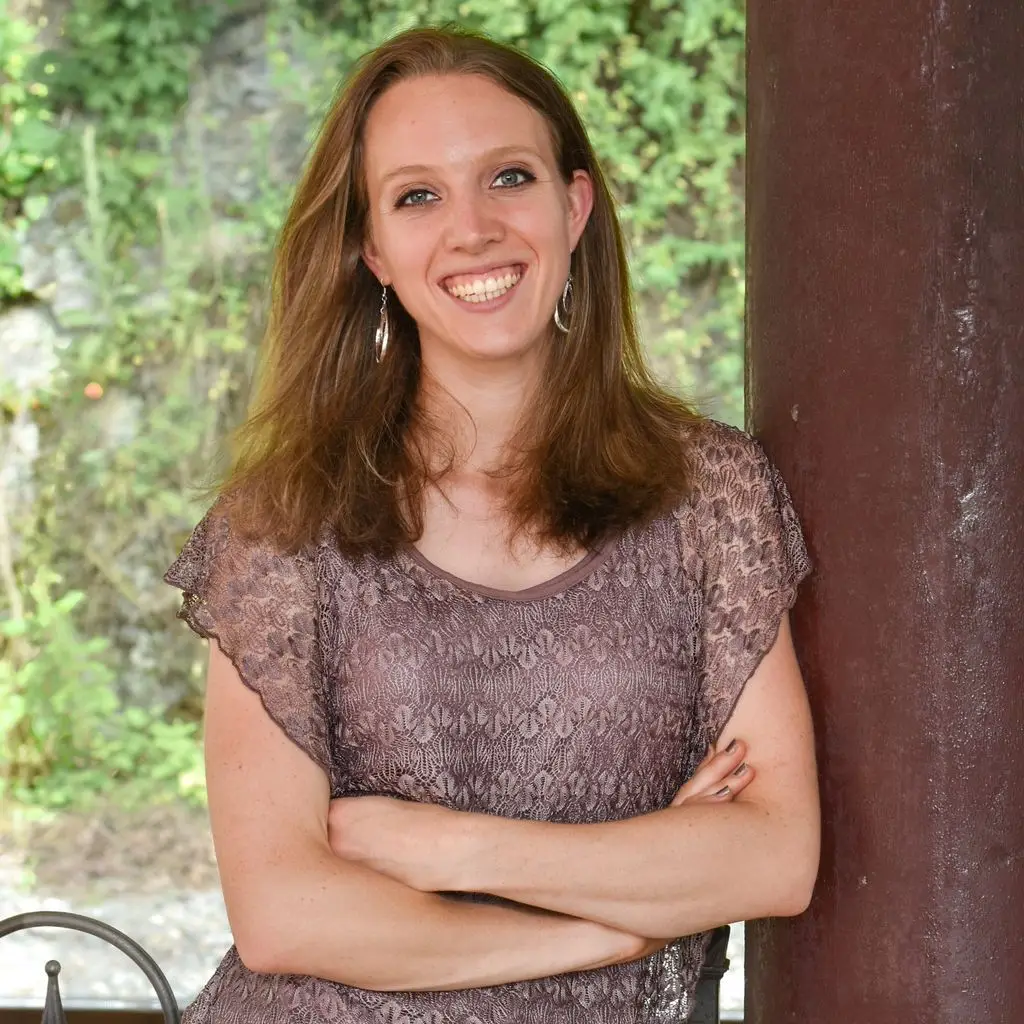Brave Enough to Love

This post was originally published on The Road to Brave.
Have you ever read a blog post that was almost entirely questions?
No?
Well, me neither, but here you go. New experiences all around.
So many of these posts are drawn out of personal experiences on this road to becoming a slightly braver, more courageous me. When I originally jotted down this thought — what it means to be brave enough to love — I had some specific thoughts and experiences in mind. Namely, how it sometimes takes a good deal of courage to choose to put yourself out there and love others despite the potential of being hurt. That’s true, and it is something I’ve wrestled with, both in romantic and non-romantic relationships. (That’s also a lot of what was pondered aloud in Brave Enough to Hurt.) But right now, when I think about what it means to be brave enough to love, I find myself with more questions, more musings, more ponderings than discrete experiences or concrete exhortations. Maybe you’ve wondered some of these things, too.
Sometimes it’s the bravest thing ever to choose to jump in and love someone. That’s true. Other times, I wonder if the bravest thing we can do is to slow down and think about the things our love has to say about us.
The future of education in your inbox.
Get productivity tips, commentary, and Unbound updates sent to you!
For example.
I wonder if why we love speaks volumes about where we find our identity.
Have you heard more sermons than you can count on the idea that it was “not good” that Adam be alone? I have, too. We weren’t created for isolation — that is hugely obvious in Scripture and experience. We were created in the image of a loving God, a God who had friends and best friends and family during His time on earth, a God who gave His own life to make us right with Him so we could be with Him throughout eternity.
What a pure, perfect love we see in Christ, acted out in genuine selflessness. Of course our only fitting response is to love Him and others, and it’s interesting that even as a western culture with deeply skewed ideas about love and faithfulness, we still celebrate the intense beauty of pure, self-sacrificial, faithful love in those rare, gorgeous places we find it.
But when I look at my own heart, and how I practically love others on a day-to-day basis, I wonder at how easy it is to have different desires start tugging at our hearts and the reasons behind why we love others. I love others not just in a feeling of friendship, but in practical actions. In the things I say and the things I do. How do I keep those practical actions flowing out of right desires?
What does my love for others flow out of — whether that’s romantic love in my marriage or non-romantic with my family and friends? Do I love others just purely out of the love Christ has given me? Do I love because I am wholehearted? Or do I love others because I desire to be loved in return? Do I serve, care for, try to meet the needs of others so that I am “worthy” of being loved back? So that I am “enough” to be loved?
When I notice myself trying to “earn” love through my actions, how do I best correct that? What truths or lies am I speaking to my own heart about my worth in Christ? Where do I see God working in my heart and mind to correct wrong patterns? Where is He bringing wholeness to me? How do I dwell more often on the incredible nature of His love so that I am grounded in what is true?
How do I “cooperate” with God in choosing to be “whole” in my love — to care for someone, or talk with someone, or provide for someone, not because duty demands it but because genuine love has no other recourse?
What does the heart behind my love — the reasons I love others — have to say about me and the work Christ is doing in me? I wonder if, in the end, one of the bravest things we can do is to think about why we choose to love and seek love.
I wonder if how we love speaks volumes about the state of our hearts and the work God is doing in us.
I’m annoyed at myself for how often I feel “inconvenienced”. That’s not the manner of love I want to have. I’ve been guilty of doing loving acts, but with an undertone of self-pity or simultaneous pride at my actions. I’ve been guilty of choosing to love others as if it all depends on me, not on our mutual relationship and not on Christ. I’ve been guilty of loving anxiously, of striving, as if my actions somehow make me more lovable in Christ’s eyes despite my full knowledge of just how stupid and ridiculous that is.
Man.
How do I cultivate more gratitude to Jesus in my life? That seems, by all accounts, to shape so much of the focus of our minds and hearts. How do I cultivate an embracing of the everyday faithfulness that encompasses daily love? How do I cultivate joy and not impatience? How do I remember, in the midst of ordinary life, that it is Christ’s sufficiency that matters — both in my relationship with Him and my relationship with others? How do I love Christ more and more out of a contented, grateful heart, and not in patterns of anxious striving?
I wonder if, in the end, one of the bravest things we can do is to challenge ourselves by thinking about how we love.
And I wonder if what we love speaks volumes about what we’re bowing to and who we’re becoming.
I’m not sure it’s couth to cite a book you haven’t read in its entirety, but James K.A. Smith’s work You Are What You Love: The Spiritual Power of Habit talks about how humans are loving beings, not solely thinking ones. He points out that we worship what we love and become like what we worship (pp. xii). In almost identical passages (Ps. 115:4 and Ps. 135:18) Scripture tells us that those who make idols become like them, and so do those who trust in them.
I wonder what things in my life would totally surprise me if I realized abruptly how much I love them. I know how much I can prioritize things like security over leaps of faith, or comfort over dealing with issues. Procrastination for the win. But is it because I love security and comfort? Is my life fashioned around those things? And if so, am I becoming someone who is more devoted to feeling comfortable than to Christ?
I’d like to think that I am wholehearted in my devotion, sold out for Christ and then by extension wholehearted in my love for my spouse, my family, my friends, and those around me. I’d like to think I don’t fall for lesser things. That’s only for foolish people.
But — if that’s the case, then I know I am guilty of being a fool. If I’m honest with myself, what other things have I chosen to love by prioritizing them? By repeat-choosing them? By activity or passivity? By refusing to root out negative patterns?
I wonder if, in the end, one of the bravest things we can do is think about what we choose to love.
I wonder.
If our high calling is to love our Savior and love those around us,
if God describes Himself as love and calls us to be people after His own heart,
if we are indeed “loving” beings with hearts that are actively oriented toward the things we choose to love and worship,
then maybe it is desperately important to be really careful about what, and why, and how we love.
This week, may we be brave enough to love, yes — but may we be brave enough to love well.

Victoria Schurter is the VP of Content and Development for Unbound. An Unbound graduate, Victoria has served in a variety of roles including student leadership, coaching, and in the Business and Leadership program. She is passionate about equipping young adults to recognize their potential, to know God, and make Him known in daily life.
When she’s not working on an Unbound project, you can find her scribbling on a novel, playing a favorite instrument, riding horses, watching a sunset, or dreaming up some new adventure that absolutely includes the Pacific coastline. One of the best parts of her world is walking alongside her fellow Unbound students as they make an eternal impact in their generation.


